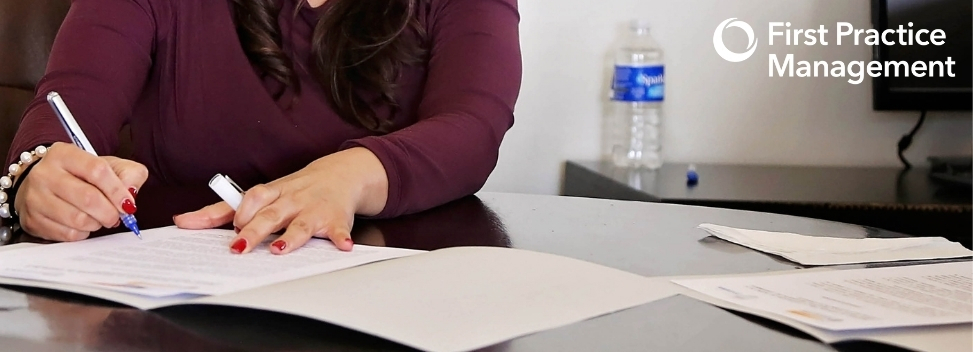
In the two years since the launch of the state-backed clinical negligence indemnity scheme for GPs (CNSGP), the scheme has widely been accepted as a success. However, our trusted insurance partner MIAB suggest that GPs and clinical staff should not rely on state-backed indemnity as a ‘cover-all’ policy, especially in terms of private work.
The state-backed indemnity scheme has its limitations, hence MIAB suggest there is additional cover you should consider.
Doctors must have adequate insurance or indemnity in place to comply with the GMC guidelines, and appropriate cover is a legal requirement from the CQC. However, GPs and other healthcare practitioners also need to ensure that they are themselves adequately protected.
While the state-backed scheme covers clinical negligence, the scope of cover is very basic and does not give clinicians the cover features required to meet all their exposures, like private work. Even if you don’t do any private work, you may want cover for fitness to practice, medico-legal matters, coroner’s court attendance and Good Samaritan acts.
Gaps in the cover provided by practice insurance policies could leave practices vulnerable.
The state-backed indemnity scheme has its limitations, and doesn't cover:
- Good Samaritan acts
- Fitness to practice/regulatory hearings
- Clinical and non-clinical audits
- Disciplinary/GMC disputes
- Data protection and compliance defence claims
- Criminal investigations/inquests/coroners’ cases
- Work for Ministry of Defence (MoD)
- Private fee-paying work – including report writing, witness statements, firearms certificates, medicals, private vaccine clinics and DVLA/emigration reports.
Defence organisations’ cover can lack clarity
For matters not covered by the government scheme, many medical professionals and GPs seek support from medical defence organisations (MDOs). It is worth noting that their cover is offered on a discretionary basis. Operating using an article of association, means that what is and isn’t covered is left to the discretion of the claim’s practitioner at the point of loss. Effectively they make their own rules on what they cover, and whether they will support a member’s claim.
Whilst it is rare for a defence organisation to decline to support a claim, it nevertheless leads to uncertainty and a lack of clarity for their members.
Unlike MDOs, the cover that MIAB can offer is insurance-backed, enforceable by law, underwritten by expert insurers and supported by an FCA-backed policy wording. MIAB work with a panel of insurers, allowing greater flexibility and speed of response than would otherwise be the case.
Cover for partnership and contract disputes
Serious partnership disagreements can often split a practice apart. The cover that MIAB can offer will provide mediation between partners to reach an amicable solution before it goes too far.
Revalidation
GPs may be required to prove their competency to allow them to continue to practice. In the event the Revalidation Board request retraining, the policy will cover the associated costs of this up to £1,000.
Indemnity to principal - protecting you and your practice
Compensation claims for private work can be aimed at the GP or, more commonly, name the practice trading name in the legal action. In such cases, the practice will need their own cover to defend themselves alongside the insured GP. To mitigate this, MIAB insurers will extend the cover back to the employer if the claim relates to an insured member.
Run-off cover for historical work
Many claims, complaints, GMC investigations or coroner's inquests occur years after the date that care was provided. Note that the government scheme does not provide run-off cover for any claims made after you stop practicing, retire, or sell your practice.
If you have a claims-paid or claims made indemnity policy, it is recommended by MIAB that you consider additional run-off medical cover for 21 years in most cases, for claims made following your retirement, relating to treatment undertaken whilst you were still practicing.
Bear in mind also that the liability for past works for many allied healthcare professionals such as nurses, primary care pharmacists, paramedics and ECPs may not be adequately covered by the state-backed scheme either. Relying on state-backed indemnity cover alone could leave you exposed, should a claim be made against you for any private or past works you’ve carried out.
Although taking out run-off cover will involve a slightly higher premium, the costs are far outweighed by mitigating the risks and protecting yourself and your practice against the spiralling cost of compensation awards and defence costs.
Ensure you are fully protected
MIAB offer ‘Indemnity Essentials’, a flexible and comprehensive wrap around policy that provides protection for work not covered by the government state-backed indemnity (CNSGP) scheme. It is tailored to the needs of the business, protecting your principal or partners, the directors, and the staff, including pharmacists, pharmacy technicians, physician associates, nurses and associated clinical support staff - both past and present.
MIAB can assist with advice on indemnity products as well as their range of other insurance products. If you wish to discuss how you can protect your practice, please get in touch at info@miab.co.uk or visit miab.co.uk or call 01438 547044.


0 Comments